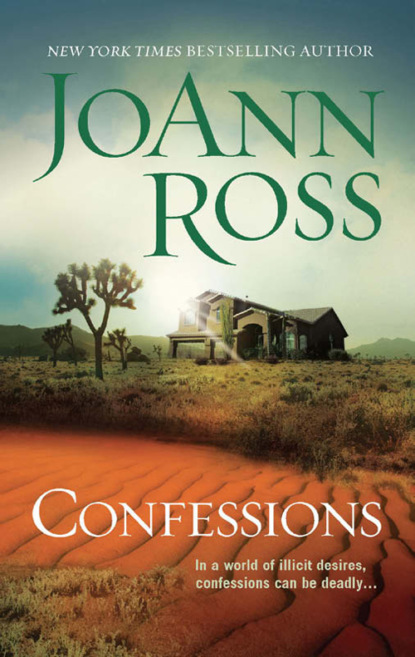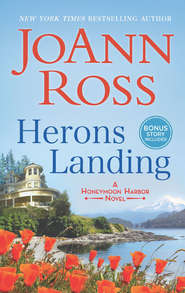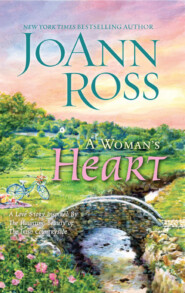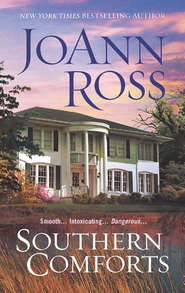По всем вопросам обращайтесь на: info@litportal.ru
(©) 2003-2025.
✖
Confessions
Автор
Год написания книги
2018
Настройки чтения
Размер шрифта
Высота строк
Поля
Experience had taught Mariah to trust her intuition about people, and that sixth sense was telling her that Trace Callahan was both intelligent and competent. Her sister was in good hands.
Laura.
Mariah felt the tears stinging at the back of her lids and resolutely blinked them away. There would be time for tears later. Right now she had work to do.
She lit another cigarette and began to compile a mental list.
First she had to identify Laura’s body. Then she had to call her mother and inform the woman she’d always known as Maggie—never Mama, or heaven forbid, Mom—that her firstborn daughter was dead.
She’d have to face her father’s unrelenting disapproval for the first time in more than a decade. She had to try to offer condolences to her wounded son-of-a-bitch brother-in-law without gagging.
And then, somehow, she was going to have to dig down deep enough to find the inner strength to get through the funeral.
In addition to all that, although he didn’t know it yet, Mariah had every intention of helping Whiskey River’s new sheriff apprehend her sister’s murderer.
Then, and only then, when the heartless monsters who’d shot Laura dead, cruelly cutting short a very special life, were behind bars, would she allow herself to cry.
Chapter Four
The medical examiner’s office was in the basement of the town’s eighty-year-old redbrick courthouse. Since the ancient elevator tended to be iffy, Trace decided to skip it.
As Mariah accompanied him down first the narrow flight of stairs and then the long, poorly lit hallway, she couldn’t quite shake the feeling that none of it was real, that she was plotting out a script.
Beautiful wife of charismatic senator is killed in an isolated ranch house during a thunderstorm, she set up the scenario. With the help of the murdered woman’s sister, an award-winning television writer, the crime is solved, the politician husband is arrested and justice wins in the end.
No, Mariah considered. That plot left the wife still dead. She erased the mental slate in her mind and began again.
Beautiful wife of charismatic senator is shot and wounded during a thunderstorm. While she lies in a coma, dogged small-town sheriff and glamorous television writer, estranged from her family for years, set out to prove the husband guilty.
The smoking gun is found. The senator gets a pair of silver bracelets and a ride in the back of a patrol car to jail, where he breaks down and confesses.
His wife wakes up in the hospital, seemingly no worse for her harrowing experience and requests a cup of herbal tea and a divorce. The sisters embrace. The music swells.
“Whatever would I have done without you?” the older sister asks tearfully.
The younger one shrugs. She is not only glamorous and famous, but modest as well. “Hey,” she says, “that’s what sisters are for.”
So, in sixty minutes, minus commercials and a network newsbreak, justice is served, a family is reunited, and the story ends on a happy, upbeat note.
It was a nice scenario, Mariah considered with an inward sigh. Too bad things didn’t work that way in real life.
Unfortunately, there was one thing that was exactly like it appeared on television. And that was the morgue.
Trace flipped the switch beside the door. The rows of fluorescent tubes flickered to life, casting a bright, but complexion-draining light over the scene. Cool air was blowing from the vent above the loading dock door of the windowless room. “The doc’s probably out getting breakfast.”
“I’m amazed he could eat.”
Trace’s only response was a shrug. Taking a new cop out for a Denny’s Grand Slam after he’d watched his first autopsy had long been viewed as a rite of passage.
A metal table stood in the center of the linoleum floor. Beside the table was a scale, like that used in supermarkets to weigh apples and oranges. Although a camera was fixed to the ceiling overhead, allowing photographs of record to be taken, the room lacked the overhead microphone that would allow the forensic pathologist to record his findings for later transcription. Instead, metal clipboards hung from hooks on the bilious green wall.
Between the clipboards and the old-fashioned black wall phone was a cork bulletin board covered with official memoranda, some of which, Mariah noted absently, were years old. Against the opposite wall, rather than the tidy steel compartments she routinely wrote into her scripts, was a walk-in freezer.
Trace gave her a judicious look. “Are you sure you’re up to this?”
“I’m sure.”
Watching her wrap her arms around herself, Trace suspected that it was not the cold she’d find inside the freezer Mariah Swann was trying to ward off, but the iciness that had taken hold of her heart.
She took a deep breath. “Let’s get it over with.”
Mariah had witnessed death before. She had even, on one memorable occasion, in the name of research, sat in on an autopsy. She had to leave the room to throw up when the pathologist popped the top of the skull with a tool that resembled a crowbar, but so had the detective assigned to the case.
This time, however, she had a personal connection to the sheet-draped body stretched out on the wheeled gurney. This was no anonymous skid-row slashing victim; this was her sister.
Trace drew back the cloth covering Laura Fletcher’s face. He watched the myriad emotions flicker across Mariah’s face: first shock, then startled recognition, followed an instant later by pain. Then, ultimately, love.
When she reached out to smooth away a few strands of auburn hair from her sister’s cheek, he made a move to stop her from contaminating the evidence, then decided, what the hell.
“That’s where she was shot?” she asked, observing the smudged wound at the left temple. Though she was almost as pale as her sister and her trembling hands betrayed her tumultuous emotions, Mariah’s voice remained steady.
“There and in the chest.”
“I want to see.”
“I’m not sure—”
She raised her chin. “I said, I want to see what was done to my sister, Sheriff.”
Their stares locked and held. Fuck it, Trace decided. He didn’t feel up to arguing the point.
Hoping she wasn’t going to faint on him again, he yanked back the sheet.
At the sight of Laura’s nude body, Mariah flinched and unconsciously put a hand to her own breast as if she suddenly felt the impact of the gunshot herself.
Trace watched her thoughtful gaze move back and forth, from one wound to the other. The lady, he decided, was no cream puff.
“There’s carbon stippling,” she murmured, pointing out the unmistakable tattoo of powder soot imbedded in a ring around the head wound.
“Yeah. Interesting you should recognize that.”
She heard the question in his voice. “In case J.D. didn’t have time to fill you in, I’m a television scriptwriter. I specialize in crime shows.” She tossed off the names of a few of the more successful ones and a made-for-television movie.
“I’ve caught a couple of those. The ones I saw were pretty accurate,” he allowed.
“Thank you. I pride myself on my research.” She looked up at him. The earlier anguish in her eyes had been replaced by an anger much chillier than the artificially cooled air in the freezer. “You know what this proves, don’t you?”
He crossed his arms. “Why don’t you tell me?”











